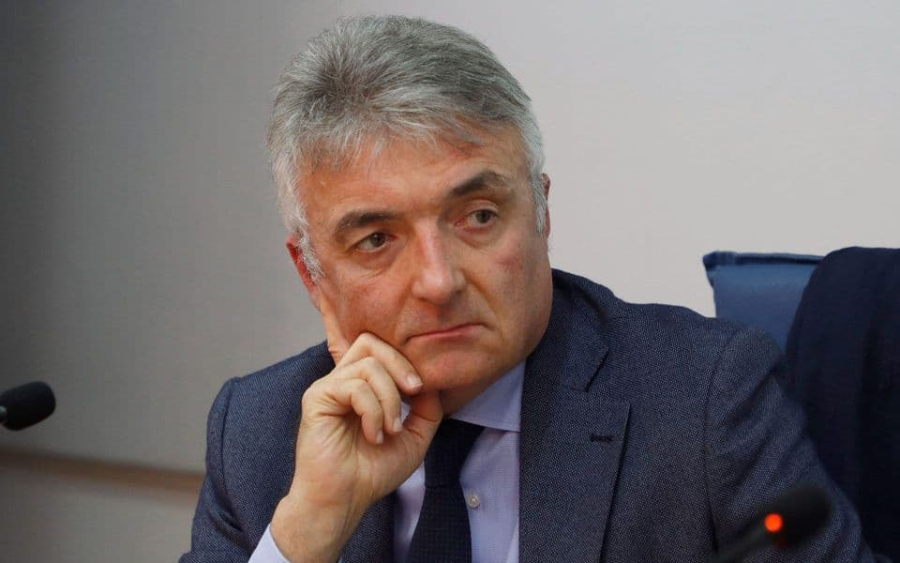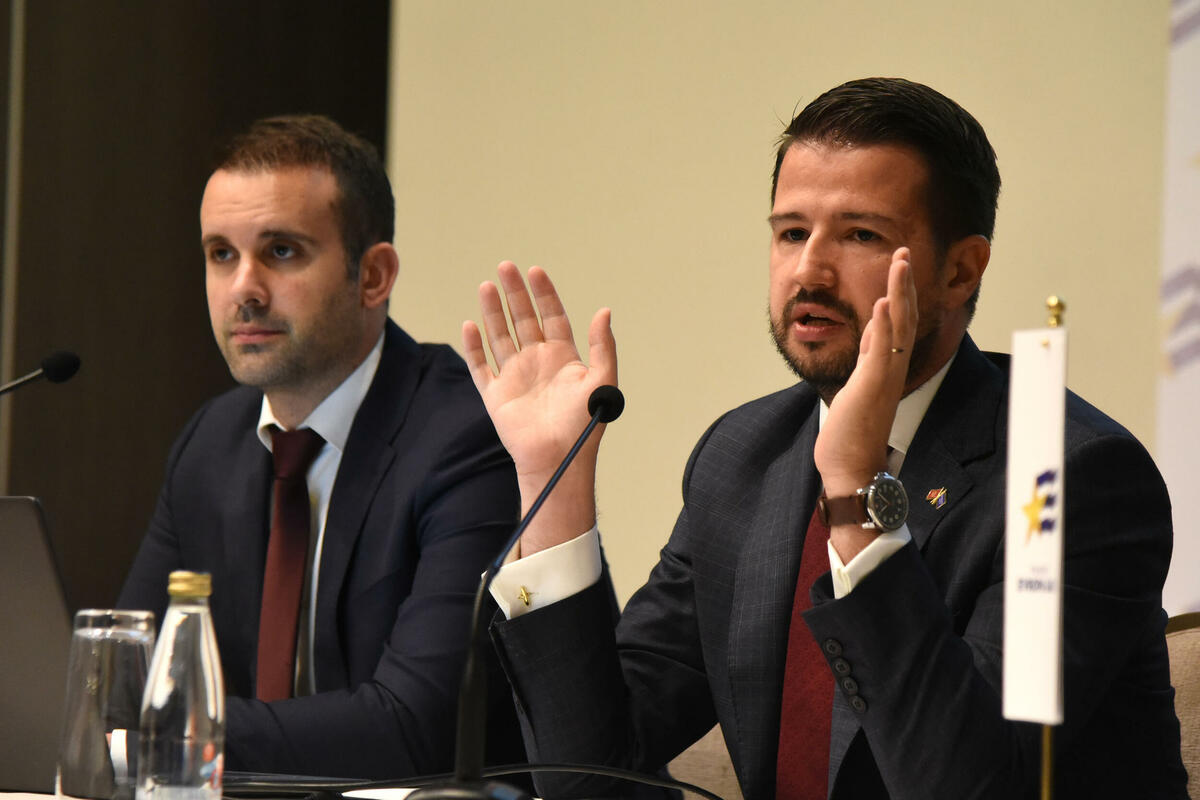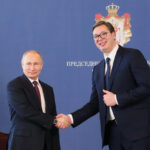The new year in Montenegro has begun with a “predictable surprise”.
Namely, after President Jakov Milatović had returned three laws recently adopted in the Parliament of Montenegro – to be discussed and voted again, as per his constitutional authority – his own party (PES, Movement “Europe Now!”) has issued a pretty harsh and direct public communique, which leaves no doubt that confrontation in-between Milatović and Milojko Spajić, PES president and Prime Minister, enters the new stage.
This development was predictable. It is a public secret, for months now (practically – even before the new Cabinet was formed) that Milatović has continually insisted to have an effective influence in executive power.
First it was a very firm position that the representatives of ex-Democratic Front parties (now: ZBCG – For the Future of Montenegro) must be included in the new Government, ignoring even clear (and public!) statements and suggestions of US and EU high-ranked diplomats. Milatović has eventually succeeded in his plan: Mr Andrija Mandić, a Serb nationalist, with visible ties with Serbian president Vučić and (alleged) ones with Kremlin services, was voted a new Speaker of Parliament. The “reconstruction”, meaning the re-shuffling of the Government, in order to include also ZBCG ministers is already a topic pushed by Mandić and his political allies.
There is an un-proclaimed coalition in-between the two, owing each other offices they occupy. Milatović, whose positions in the West were seriously damaged after his refusal/ignorance to comply with expectations has no other option but to incline towards Mandić. Even without that – political and ideological similarities are too numerous and too close to be overseen or ignored.
Milatović, according to all reports and testimonies, can hardly resist the urge to criticize Spajić in practically all situations and before any audience. His public statements and other communications are more and more drafted in the way which makes the conflict with Prime Minister a public affair, a situation known to everyone.
On the top of that, the new President expresses, on daily basis and in practically all segments of competences which are exclusively governmental ones, a very visible desire to have a saying and to be a part of decision-making process in matters which do not correspond to any of his authorities and duties, as per Constitution. The most serious attempt – in that context – which is not over yet, was to create a “presidential council for foreign affairs”, which would include (“ex officio”!) even the minister of foreign affairs, as well as the head of the parliamentary committee for foreign policy and diaspora (?!).
The same applies to economic agenda, where Milatovic, ignoring public criticism, which has become frequent, interferes with issues and problems without amy legal authority.
Prime Minister Spajić has avoided any public confrontation until the above mentioned communique.
He is said to have prevalence within the PES party ranks. But – it should not be forgotten – that majority is not a stable phenomenon, as it was shown in previous situations of his confrontation with Milatović.
In any case – it seems now that the gloves are definitely off. Spahić cannot afford to ignore Milatović activities and moves silently, because it weakens his standings not only in Montenegro, but also in front of Western partners. His recent visit to Brussels has confirmed that: very promising messages were heard there, formulated in a way to boost support for him in Montenegro itself, but also to emphasize that Spajić and his cabinet have full support from the EU.
Spajić, therefore, cannot and should not afford to tolerate Milatović anti-constitutional ambitions. Additional reasons for such a position were already mentioned: speaker Mandić and political circles, agencies, the Church of Serbia and pro-Serbian/pro-Russian media outlets, both in Montenegro and in Serbia. A long list.
Spajić will have a lot of obstacles – maybe the most important among of them being his own lack of experience and political knowledge. Without clear, robust and efficient Western support (primarily Washington and, to lesser extent, Brussels) Spajić’s chances are pretty shaky.
It is also clear that the opposite side will waste no time to re-group and to efficiently re-organize, focusing their efforts in further “serbization” of Montenegro – through the projected changes in Constitution and in an enormous media effort to stigmatize and ruin any serious attempt to create strong opposition.
That is also why Mandić and his political allies insist on Constitutional changes, spreading the word that Census results will surely show the rise of percentage of the people declaring themselves Serbs and speaking Serbian. Their position also includes support to Vučić in Serbia and continuous efforts to legitimize Russian aggression on Ukraine, even in very indirect way, relativizing the very narrative, which talks about “conflict in Ukraine”.
Similarities with “Little Ukraine” – meaning Montenegro – an expression promoted by the Church of Serbia, are striking ones and represent the long-standing threat to Montenegrin stability and territorial integrity.
Last, but not the least, there is a situation in which Spajić needs calm and as regular as possible situation in order to (try to) deliver some of his very ambitious economic and financial promises. The other side – Mandić and Milatović – will prefer constant crisis and turbulent political and economic scenarios. Spajić would prefer to marginalize – to the extent possible – all of the heavy political issues; Milatović and Mandić, being connected and dependent on Vučić will play the card of insecurity and permanent crisis.
That is why Spajić’s rosy projections on an accelerated European agenda seem over optimistic – especially in situation oppressed with number of destructive and dangerous processes – both in political and in economic terms.
The forthcoming storm in Montenegro seems to be the most probable scenario.
Even worse: without an urgent and massive support and involvement of the West, the Storm appears as an inevitable script-write.
It is sad to report that the first – although not impossible – is less likely to occur; and that the second, although it could have been avoided – and it still can be avoided – appears as imminent and clear danger for Montenegro.
Miodrag Vlahović. Montenegrin politician and former diplomat. The first Minister of Foreign Affairs of Montenegro. Former Montenegro’s Ambassador to the USA, Canada, Iceland, Holy See, Order of Malta.




